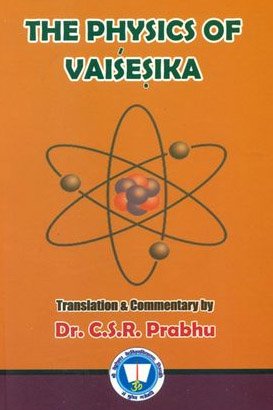Vishnumishra, Viṣṇumiśra: 4 definitions
Introduction:
Vishnumishra means something in Hinduism, Sanskrit. If you want to know the exact meaning, history, etymology or English translation of this term then check out the descriptions on this page. Add your comment or reference to a book if you want to contribute to this summary article.
The Sanskrit term Viṣṇumiśra can be transliterated into English as Visnumisra or Vishnumishra, using the IAST transliteration scheme (?).
In Hinduism
Vyakarana (Sanskrit grammar)
Source: Wikisource: A dictionary of Sanskrit grammarViṣṇumiśra (विष्णुमिश्र).—A scholar of the Supadma system of grammar who has written a commentary named मकरन्द (makaranda) on the सुपद्मव्याकरण (supadmavyākaraṇa) and also a commentary on the सुपद्मसमाससंग्रह (supadmasamāsasaṃgraha).

Vyakarana (व्याकरण, vyākaraṇa) refers to Sanskrit grammar and represents one of the six additional sciences (vedanga) to be studied along with the Vedas. Vyakarana concerns itself with the rules of Sanskrit grammar and linguistic analysis in order to establish the correct context of words and sentences.
Vaisheshika (school of philosophy)
Source: Shodhganga: A study of Nyāya-vaiśeṣika categories (vaisesika)Viṣṇumiśra (विष्णुमिश्र) is mentioned by Ananta Thākur as a writer of Vaiśeṣika system, but about him nothing is known.

Vaisheshika (वैशेषिक, vaiśeṣika) refers to a school of orthodox Hindu philosophy (astika), drawing its subject-matter from the Upanishads. Vaisheshika deals with subjects such as logic, epistemology, philosophy and expounds concepts similar to Buddhism in nature
Languages of India and abroad
Sanskrit dictionary
Source: Cologne Digital Sanskrit Dictionaries: Aufrecht Catalogus CatalogorumViṣṇumiśra (विष्णुमिश्र) as mentioned in Aufrecht’s Catalogus Catalogorum:—Supadmamakaranda, a
—[commentary] on Padmanābhadatta’s Supadma grammar.
—[commentary] on Rūpanārāyaṇa’s Supadmasamāsasaṃgraha.
[Sanskrit to German]
Sanskrit, also spelled संस्कृतम् (saṃskṛtam), is an ancient language of India commonly seen as the grandmother of the Indo-European language family (even English!). Closely allied with Prakrit and Pali, Sanskrit is more exhaustive in both grammar and terms and has the most extensive collection of literature in the world, greatly surpassing its sister-languages Greek and Latin.
See also (Relevant definitions)
Query error!
Full-text: Supadmasamasasamgrahatika, Supadmavyakaranatika, Supadma, Makaranda, Nityananda, Navakandikashraddhasutra, Shraddhakalpasutra.
Relevant text
Search found 3 books and stories containing Vishnumishra, Viṣṇumiśra, Visnumisra; (plurals include: Vishnumishras, Viṣṇumiśras, Visnumisras). You can also click to the full overview containing English textual excerpts. Below are direct links for the most relevant articles:
Notices of Sanskrit Manuscripts (by Rajendralala Mitra)
Nyaya-Vaisheshika categories (Study) (by Diptimani Goswami)
The Syncretic School of Nyāya-Vaiśeṣika < [Chapter 1 - Introduction]
A History of Indian Philosophy Volume 3 (by Surendranath Dasgupta)
Part 20 - Kastūrī Raṅgācārya < [Chapter XX - Philosophy of the Rāmānuja School of Thought]